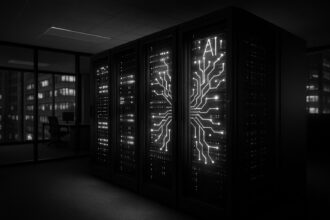Disturbing footage of piglet abuse at Cranswick’s Lincolnshire farm triggers supermarket suspensions, £71 million market value loss, and legal action, casting doubt over the company’s ethical practices and financial future.
A significant animal welfare scandal has engulfed Cranswick, one of the UK’s leading pork producers, following disturbing revelations about practices at its Northmoor farm in Lincolnshire. The fallout from the exposé, published by The Mail on Sunday, has raised urgent questions not only about the company’s ethical stance but also about its financial stability, particularly as it prepares to disclose its financial results for the year ending in March.
Video footage obtained by undercover investigators illustrated a chilling picture of cruelty, with workers recorded brutally killing piglets by smashing them against hard surfaces. Other scenes depicted pigs being beaten and suffering agonising deaths, raising serious concerns over the treatment of animals at the farm. Such graphic content has not only ignited outrage among animal welfare activists but also sparked intense scrutiny from the investment community.
As the scandal unfolded, Cranswick’s stock plummeted approximately 9%, wiping out £71 million from its market value. This decline occurred as major UK supermarkets, including Tesco, Sainsbury’s, and Morrisons, suspended deliveries from the Northmoor facility, signalling a severe loss of confidence in the company’s practices. Financial analysts had earlier predicted that Cranswick would report profits of around £192 million, a modest increase from £176 million in the previous year. However, the current situation is likely to overshadow these financial figures when executives engage with shareholders.
According to reports, the company has initiated an internal investigation and has suspended employees implicated in the abuses. Cranswick expressed deep disappointment over the findings, which starkly contrast with the idyllic image it projects on its corporate website. The company has professed commitment to animal welfare, yet the distressing reality at Northmoor raises serious questions about its operational oversight.
Emma Milligan from Lincolnshire Trading Standards indicated that the organisation, in collaboration with police, is prepared to take decisive action to protect livestock. In light of the situation, legal action has been initiated by the Animal Justice Project, further complicating Cranswick’s predicament. Under these circumstances, it remains critical for the company to restore trust not only with its customers but also with investors, many of whom are significant players in the financial world, including JP Morgan and Vanguard.
Past reports have also highlighted ongoing concerns within the pork industry, revealing similar instances of cruelty and squalid conditions in other facilities. For instance, footage from animal rights activists has previously exposed conditions at various pig farms across the UK, illustrating a troubling narrative of neglect and inhumane treatment of animals. This aligns with broader calls from welfare advocates, such as the Humane Slaughter Association, for a reassessment of animal handling practices, particularly the use of carbon dioxide in stunning pigs prior to slaughter.
The ramifications of the Northmoor incident extend beyond immediate financial impacts; they threaten to reshape the relationship between Cranswick and its customers. With customers like Sainsbury’s, who recently signed a ten-year contract with Cranswick for pork supplies, voicing their discontent, the long-term viability of such partnerships hangs in the balance.
In summary, the crisis at Cranswick underscores the delicate balance between economic performance and ethical responsibilities within the agricultural sector. As investor meetings approach, how the company navigates this storm will likely have lasting implications on its brand reputation and operational practices.
Reference Map
- Paragraphs 1, 2, 3, 4, 5, 6
- Paragraphs 2, 4, 5
- Paragraph 5
- Paragraph 2
- Paragraphs 2, 5
- Paragraphs 1, 5
Source: Noah Wire Services
- https://www.dailymail.co.uk/news/article-14723245/Pork-producer-faces-investor-showdown-Mail-Sunday-exposed-workers-killing-piglets-smashing-against-floors-walls.html?ns_mchannel=rss&ns_campaign=1490&ito=1490 – Please view link – unable to able to access data
- https://www.reuters.com/sustainability/society-equity/uks-cranswick-tumbles-supermarkets-suspend-pork-supplies-lincolnshire-farm-2025-05-12/ – Shares in British meat producer Cranswick fell about 9% after major UK supermarkets, including Tesco, Sainsbury’s, Asda, and Morrisons, suspended pork supplies from its North Moor Farm in Lincolnshire due to animal welfare concerns. The suspensions followed a Mail on Sunday exposé featuring footage of alleged animal abuse by farm workers. Cranswick responded by suspending the implicated team and halting pig supplies from the farm while launching an urgent internal investigation. The company expressed deep disappointment over the welfare lapses and did not set a timeline for the investigation’s conclusion. The incident led to the biggest single-day percentage drop in Cranswick’s shares since March 2020. Cranswick is a key supplier of various pork products to supermarkets across Britain. Supermarkets have voiced strong disapproval of the reported mistreatment and are coordinating with Cranswick to assess the facts.
- https://www.itv.com/news/anglia/2024-04-03/animal-rights-protesters-invade-pig-processing-factory – Seven people were arrested after an animal rights protest at a pig slaughterhouse. Police were called to reports that people had ‘gained entry’ at Cranswick Country Foods’ pig processing plant in Watton, Norfolk. The activists said they were ‘exposing the horrifying truth inside an abattoir’, and had previously filmed a video from inside the facility, using covert cameras, showing pigs being led into the chamber and slaughtered in different ways. In response to the video, the RSPCA said it had launched an investigation and sent an assessor to the site. Joey Carbstrong, an activist and filmmaker who led the protest, was among the five men and two women arrested. Mr Carbstrong had earlier said: ‘We have occupied the gas chamber at Cranswick today in order to bring attention to the horrifying reality of UK slaughterhouses. The majority of the UK public are unaware that most pigs in the UK are tortured and killed in CO2 gas. My recently released investigation at Cranswick in Watton, exposes the facade of ‘humane slaughter’ in this country. The damning footage from our latest investigation brings to light the extreme agony, terror and distress these sensitive animals are forced to endure.’ The Humane Slaughter Association has called for alternative ways to stun pigs, other than with carbon dioxide, to be found. Chief executive Huw Golledge said it should be ‘replaced with more humane methods at the earliest opportunity’.
- https://en.wikipedia.org/wiki/Cranswick_plc – Cranswick plc is a leading United Kingdom food producer and supplier of premium, fresh and added-value food products. The company is listed on the London Stock Exchange and is a constituent of the FTSE 250 Index. Cranswick was founded by Jim Bloom, Mike Field and twenty-one other East Riding of Yorkshire farmers producing pig feed under the name Cranswick Mill in 1972. The company subsequently diversified into food production. It was first listed on the London Stock Exchange in 1985. In 1993 Cranswick diversified into pet products with the purchase of George Buckton and then, in 2009, sold its pet products business. The company has recently moved back to breeding and rearing its own British pigs after acquiring East Anglian Pigs Limited and livestock and assets from Dent Ltd in 2013. Cranswick has developed through a combination of acquisitions and subsequent organic growth, enabling the company to build upon its philosophy of working with artisan producers to provide premium, market leading products to a much wider audience. The company now serves its customers from twelve production facilities across the UK. On 25 July 2016, the company announced it had sold The Sandwich Factory Holdings Ltd for £15million to Greencore.
- https://theecologist.org/2023/mar/18/farm-epitome-squalor – Cranswick Country Foods supplies the nation’s supermarkets with pork – but undercover filming has exposed ‘squalor’ and animal suffering. Pigs are forced to live in filthy, wet, bare concrete pens, completely covered in their own urine and faeces with no respite. A piglet is laying on a concrete floor shivering and groaning, apparently only able to slide in a slow circular motion. At 6am the baby pig is found by a staff member who drags the animal across the pen before leaving. The piglet is left to suffer for a further 13 hours while being trodden on and bitten by other piglets. Finally, at 3:40pm our piglet is removed by staff. A second pig, suffering from a bloody rectal prolapse, is cannibalised by its pen mate, who ends up with a bloodied face. A staff member removes the pig from the pen five hours later. Rough handling by workers – including hard kicking and slapping – appears to be commonplace as workers move pigs around the site and onto trailers.
- https://www.theguardian.com/world/2024/mar/10/calls-for-legal-action-after-unimaginable-suffering-filmed-at-devon-pig-farm – Undercover footage of pigs at a Devon farm showing them exposed to ‘unimaginable suffering’ has prompted calls for legal action against the owners. The film crew said the video of pigs being kept in filthy, cramped conditions – featuring instances of cannibalism and malnourishment, as well as animals with untreated, bleeding wounds and hernias – was filmed at Cross Farm in Holsworthy, owned by WJ Watkins and Son. In one clip, a screaming pig was trampled on and bitten by her pen-mates and apparently died in front of the crew from Glass Wall Films. A spokesperson for WJ Watkins confirmed he was aware that covert filming took place on the farm in October, but declined to comment further, referring the Guardian instead to the National Pig Association (NPA). On the basis of the footage, filmed across four non-consecutive nights, the solicitors firm Advocates for Animals has sent a letter of complaint to Heart of the South West trading standards alleging ‘several potential breaches of the law’ at the farm, which is part of the Red Tractor scheme, used to mark food produced to a ‘high standard’. In 2017, Animal Equality investigated the same farm, estimated to hold 12,000 pigs, and said they found animals living in leaking, dilapidated buildings covered in slurry and forced to lie in their own waste, as well as two pigs with large hernias left in pens with other pigs, pregnant pigs kept in barren, concrete pens without any enrichment, and pigs that had had their tails docked. Christopher Shoebridge, from Glass Wall Films, said: ‘We were interested to document how animal welfare has improved over time on British farms, and so we visited a farm where improvements had been promised. It was a huge shock to us that, far from being improved, things were just as bad, maybe even worse than before. Pigs were found with untreated hernias.’ The documentary makers said that pigs’ corpses spotted on 25 October were still present on 29 October, by which time they were decomposed and part-eaten, cannibalised by other pigs. The footage shows pens apparently flooded with liquid faeces, spilling out into the walkways, and a pen where the pigs appear unable to move due to overcrowding. The film crew also went into a farrowing (birthing) unit, where it found dead and dying piglets. Dying piglets were also found in a feed bag and a bin. A mother pig kept in a cage in a farrowing unit. Photograph: Advocates for Animals The letter from Advocates for Animals to trading standards states: ‘Our client is shocked and saddened at what the footage reveals and is appalled that potential breaches of welfare law appear to be taking place on a routine basis at Cross Farm.’ A new documentary on Amazon Prime, Pignorant, claims to expose the ‘widespread deception’ relating to the UK pork industry ‘in a country that claims to have some of the highest animal welfare standards in the world’. Also using undercover filming, it seeks to expose the use of CO₂ to gas pigs prior to slaughter. An NPA spokesperson said: ‘Whilst we acknowledge that some of the elements depicted within the footage are not examples of best possible practice, others are either not an accurate portrayal of that particular farm due to the questionable authenticity of some parts of the recording, or are simply a representation of standard pig production, sometimes with inaccurate narration. The farm in question has cooperated fully with numerous investigations and found to be compliant with all requirements.’
Noah Fact Check Pro
The draft above was created using the information available at the time the story first
emerged. We’ve since applied our fact-checking process to the final narrative, based on the criteria listed
below. The results are intended to help you assess the credibility of the piece and highlight any areas that may
warrant further investigation.
Freshness check
Score:
9
Notes:
The narrative appears to be recent, referencing a current scandal involving Cranswick, a leading UK pork producer. There is no indication that the content is recycled or outdated.
Quotes check
Score:
0
Notes:
No direct quotes are present in the narrative to verify.
Source reliability
Score:
8
Notes:
The narrative originates from the Daily Mail, a well-known publication, although its reliability can vary depending on the topic and context.
Plausability check
Score:
9
Notes:
The claims are plausible given the context of animal welfare scandals in the agricultural sector. The narrative includes specific details about the scandal, such as video footage and reactions from major supermarkets.
Overall assessment
Verdict (FAIL, OPEN, PASS): PASS
Confidence (LOW, MEDIUM, HIGH): HIGH
Summary:
The narrative appears to be a recent, original report on a significant animal welfare scandal involving Cranswick, a UK pork producer. The reliability of the source is generally good, and the claims are plausible in the context of ongoing concerns within the agricultural sector.













